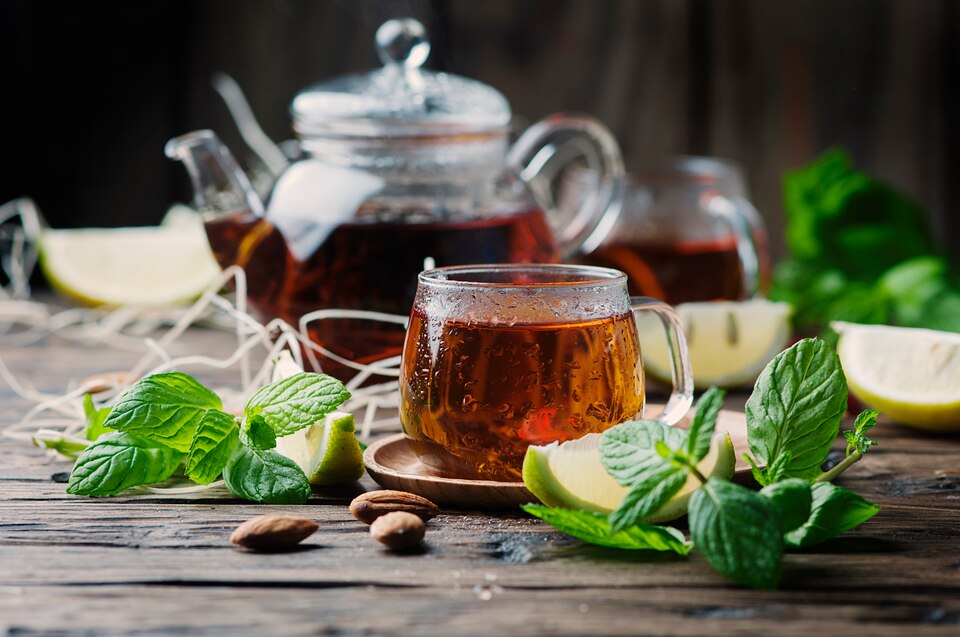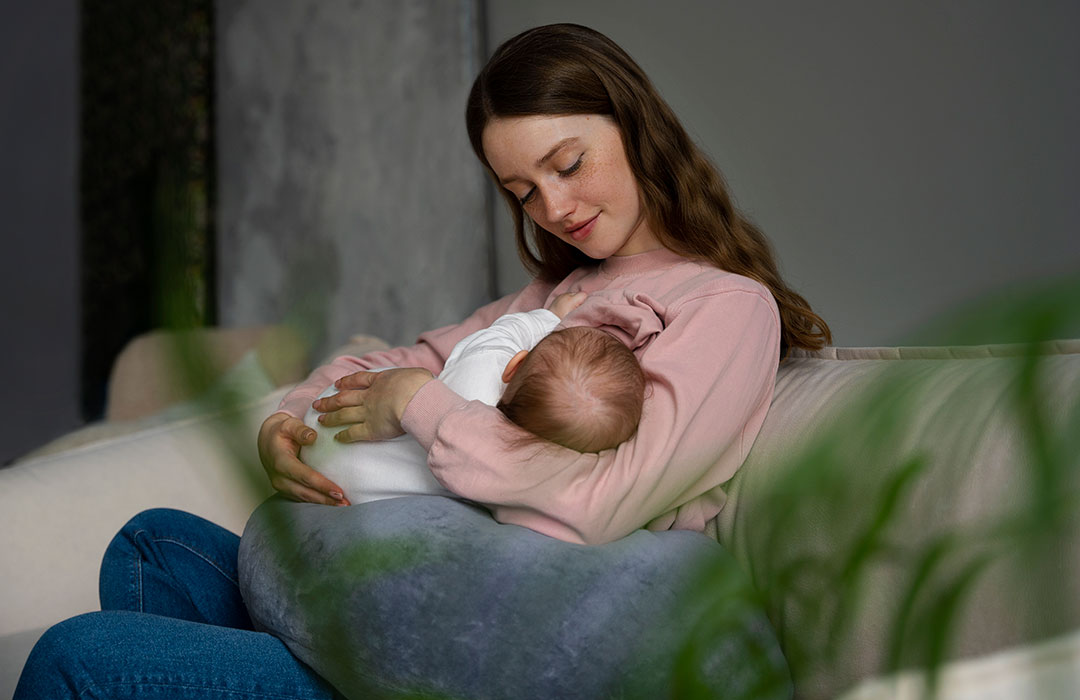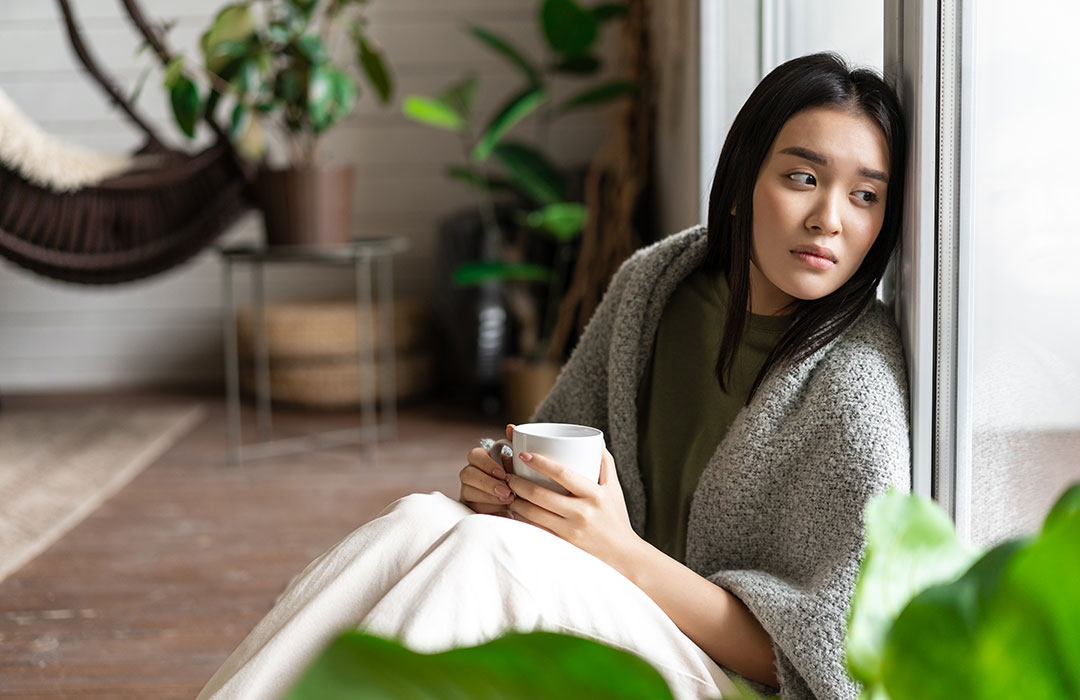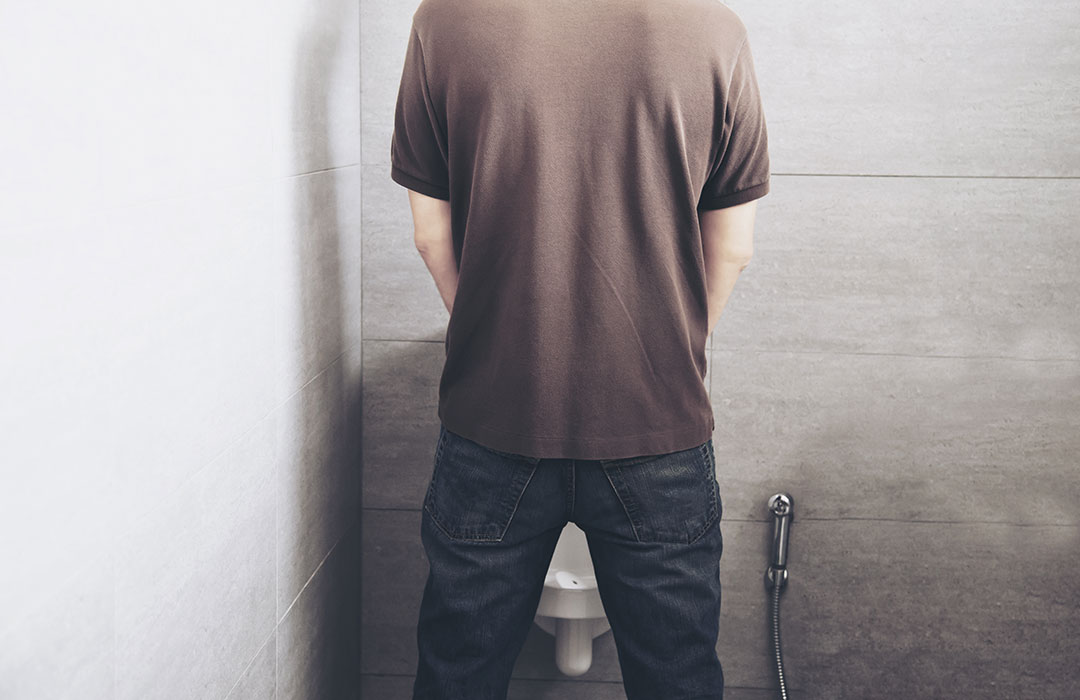Introduction
Welcome to our comprehensive guide on sweet tea and its caffeine content. Sweet tea is a beloved beverage many enjoy, especially in the southern regions of the United States. It’s a refreshing and flavorful drink that has gained popularity nationwide. However, a question often arises among tea enthusiasts – does sweet tea have caffeine? This article will delve into the truth behind sweet tea’s caffeine content and provide all the necessary information. So, let’s get started!
The Basics of Sweet Tea
What is Sweet Tea?
Sweet tea is a type of iced tea brewed with black tea leaves and sweetened with sugar or other sweeteners. It is commonly served chilled over ice and is a popular beverage during hot summer. Sweet tea has a distinct taste that balances the natural bitterness of tea leaves with the sweetness of sugar, resulting in a refreshing and delightful flavor.
The Popularity of Sweet Tea
Sweet tea has a rich history in the southern United States, where it is often considered a staple of southern cuisine. It has become an iconic beverage associated with hospitality and Southern charm. However, its popularity has extended beyond the southern states, and today, you can find sweet tea being served in various regions across the country.
Understanding Caffeine in Tea
The Role of Caffeine in Tea
Caffeine is a natural stimulant found in many beverages, including tea. It belongs to a class of compounds called methylxanthines and acts as a central nervous system stimulant. Caffeine is known for its ability to increase alertness and reduce fatigue, which is why many people rely on it as a pick-me-up during the day.
Caffeine in Different Types of Tea
The caffeine content in tea can vary depending on the type of tea leaves used and the brewing method. Generally, tea leaves contain caffeine naturally, but the levels can differ. Here’s a breakdown of the caffeine content in various types of tea:
- Black Tea: Black tea is known for its robust flavor and higher caffeine content than other tea types. On average, an 8-ounce cup of black tea contains around 30-60 milligrams of caffeine.
- Green Tea: Green tea is a milder and more delicate tea variety. It is often praised for its health benefits and lower caffeine content. A typical 8-ounce cup of green tea contains approximately 20-45 milligrams of caffeine.
- White Tea: White tea is the least processed of all tea types, resulting in a subtle and delicate flavor. It contains the lowest amount of caffeine among the major tea varieties, with an average of 15-30 milligrams per 8-ounce cup.
- Herbal Tea: Herbal teas are not true but infusions made from various herbs, fruits, flowers, and spices. Most herbal teas are caffeine-free, making them a popular choice for those looking to avoid caffeine altogether.
Does Sweet Tea Have Caffeine?
Let’s address the burning question: does sweet tea have caffeine? The answer is yes, sweet tea does contain caffeine. Since sweet tea is typically made using black tea as its base, it inherits the caffeine content present in black tea. However, the amount of caffeine in sweet tea can vary depending on factors such as the brewing strength and the proportion of tea to water.
On average, an 8-ounce cup of sweet tea contains approximately 25-50 milligrams of caffeine. This falls within the range of caffeine content found in black tea. It’s worth noting that the specific caffeine content can differ based on the brewing process and personal preference.
Debunking Common Myths
Myth 1: Sweet Tea is Caffeine-Free
Some people mistakenly believe that sweet tea is caffeine-free due to its sweet taste. However, this is not accurate. Sweet tea is made with black tea, which inherently contains caffeine. Adding sugar or sweeteners to the tea does not remove or reduce its caffeine content.
Myth 2: Decaffeinated Sweet Tea is Caffeine-Free
Decaffeinated tea is often marketed as a caffeine-free alternative. While it’s true that decaffeinated teas have undergone a process to remove most of the caffeine, trace amounts may remain. Therefore, decaffeinated sweet tea may contain small amounts of caffeine, albeit significantly less than regular sweet tea.
Myth 3: The Longer You Brew Sweet Tea, the More Caffeine it Contains
The duration of the brewing process does not significantly impact the caffeine content of sweet tea. Caffeine is released relatively quickly during the initial stages of brewing, and further brewing time will not significantly increase its concentration. However, a longer brewing time can affect the taste of the tea, as it may become stronger or more bitter.
Which Type of Sweet Tea has the Most Caffeine?
When it comes to the caffeine content in sweet tea, the type of tea leaves used plays a significant role. While all sweet teas are brewed using black tea as the base, the specific variety of black tea can affect the caffeine levels. Here are a few types of sweet tea that are known to have higher caffeine levels:
- Assam Sweet Tea: Assam tea is a type of black tea that originates from the Assam region in India. It is known for its robust and malty flavor. Assam sweet tea tends to have a higher caffeine content due to the naturally higher caffeine levels in Assam tea leaves.
- Ceylon Sweet Tea: Ceylon tea is a black tea variety primarily produced in Sri Lanka. It is known for its bright and bold flavor. Ceylon sweet tea can have moderate to high caffeine content, depending on the specific Ceylon tea leaves used.
- English Breakfast Sweet Tea: English Breakfast tea is a blend of black teas, usually including Assam, Ceylon, and Kenyan teas. It is a popular choice for making sweet tea thanks to its rich and robust flavor. Since it often contains Assam tea, English Breakfast sweet tea can have a higher caffeine content.
It’s important to note that the caffeine levels can still vary within these types of sweet tea based on factors such as brewing strength and the ratio of tea to water. If you’re specifically looking for sweet tea with higher caffeine levels, choosing blends that include Assam or Ceylon teas can be a good option.
Remember to consume any caffeinated beverages, including sweet tea, in moderation and be aware of your caffeine sensitivity.
The Effects of Caffeine
Stimulant Properties of Caffeine
Caffeine is widely recognized for its stimulating effects on the central nervous system. When consumed, caffeine is absorbed into the bloodstream and travels to the brain, where it blocks adenosine receptors. Adenosine is a neurotransmitter that promotes relaxation and sleep. By blocking the adenosine receptors, caffeine enhances alertness and reduces the feeling of fatigue.
Individual Sensitivity to Caffeine
It’s important to note that individuals may have varying sensitivities to caffeine. Some people may experience its effects more strongly, while others may be less affected. Factors such as body weight, metabolism, and tolerance levels can influence how caffeine affects each person.
Potential Side Effects of Excessive Caffeine Consumption
While moderate caffeine consumption is considered safe for most individuals, excessive intake can lead to certain side effects. These may include:
- Insomnia: Caffeine’s stimulant properties can disrupt sleep patterns, especially when consumed in large amounts or near bedtime.
- Increased Heart Rate: High doses of caffeine can cause a rapid heart rate, palpitations, or irregular heartbeat in susceptible individuals.
- Nervousness and Jitters: Excessive caffeine intake can trigger feelings of restlessness, anxiety, and jitters.
- Gastrointestinal Issues: Some individuals may experience digestive problems, such as acid reflux or stomach discomfort, due to consuming too much caffeine.
Be mindful of caffeine consumption and listen to your body’s signals to maintain a healthy balance.
How to Reduce Caffeine in Sweet Tea?
If you are a sweet tea lover but want to cut back on your caffeine intake, there are several methods you can try to reduce the caffeine content in your beverage. Here are some effective ways to enjoy your sweet tea with lower caffeine levels:
- Brewing Time: The longer you steep the tea bags or leaves in hot water, the more caffeine will be extracted. To reduce caffeine, try steeping your tea for a shorter period. Generally, a steeping time of 1-3 minutes will result in a milder caffeine content.
- Blending with Herbal Tea: Mixing your sweet tea with herbal teas that are naturally caffeine-free can be a great option. Herbal teas like chamomile, peppermint, or rooibos can complement the flavor of sweet tea while eliminating caffeine.
- Choosing Decaf Tea: Look for decaffeinated tea options in stores. Decaf sweet tea allows you to savor the delicious taste of sweet tea without worrying about its caffeine effects.
- Dilution: Another simple way to reduce caffeine is by diluting your sweet tea with water or ice. This lowers the caffeine concentration and makes the drink more refreshing on a hot day.
- Cold Brew Sweet Tea: Cold brewing tea results in a lower caffeine content than traditional hot brewing. Try making your sweet tea using the cold brew method for a smoother, less caffeinated taste.
Sweet Tea vs. Coffee
Sweet tea and coffee are two popular beverages with unique taste and caffeine content. Here’s a comparison between the two:
- Caffeine Content: Generally, an 8-ounce cup of coffee contains more caffeine than an 8-ounce cup of sweet tea. The caffeine levels can vary depending on the type and preparation, but coffee tends to be higher in caffeine.
- Taste Profile: Sweet tea is a refreshing, sweetened black tea, often served with ice and lemon. On the other hand, coffee can have a range of flavors depending on the bean type, roast level, and brewing method.
- Cultural Variations: Sweet tea is commonly associated with Southern U.S. culture, while coffee has a more global appeal and various cultural preparations.
- Health Benefits: Both beverages offer some health benefits. Tea is rich in antioxidants, while coffee has been associated with improved mental alertness. However, excessive caffeine consumption from either beverage can have adverse effects.
- Caffeine Sensitivity: Some people find coffee’s high caffeine content too stimulating and prefer sweet tea as a milder alternative.
Home Brewed Sweet Tea vs. Take Out Sweet Tea
Choosing between home-brewed sweet tea and take-out options can impact the caffeine content and overall experience. Let’s explore the differences:
- Caffeine Control: When brewing sweet tea at home, you have better control over the caffeine content by adjusting the steeping time and tea blend. Take-out options may have higher caffeine levels due to standardized preparation.
- Quality and Freshness: Brewing sweet tea at home allows you to use fresh tea leaves or bags, ensuring better quality and taste. Take-out sweet tea may have been sitting for some time, potentially affecting its flavor.
- Customization: You can customize the sweetness at home and add your preferred ingredients, like lemon or mint. Take-out sweet tea may come pre-sweetened, limiting your ability to adjust to your taste.
- Convenience: Take-out sweet tea offers convenience, especially on the go. However, brewing sweet tea at home can be a rewarding experience and allows you to create a blend that suits your preferences.
Iced Tea vs. Sweet Tea
“Iced tea” and “sweet tea” are terms that are sometimes used interchangeably, but they refer to different types of beverages:
- Iced Tea: Iced tea is a broad category that includes various types of tea, such as black, green, white, or herbal teas, served cold with ice. Iced tea can be sweetened or unsweetened, depending on personal taste.
- Sweet Tea: Sweet tea, specifically, refers to a chilled, sweetened black tea popular in the Southern United States. It is typically served over ice and often garnished with lemon.
Is Southern Sweet Tea high in caffeine?
Southern sweet tea is known for its sweet and refreshing taste, but is it high in caffeine? The caffeine content of Southern sweet tea depends on several factors:
- Brewing Method: The caffeine levels in Southern sweet tea can vary based on how the tea is brewed. Longer steeping times and more tea leaves or bags can produce higher caffeine content.
- Sweetness Level: The sweetness of the tea doesn’t affect its caffeine content, but it can influence how much tea you consume. If you drink more sweet tea due to its enjoyable taste, you may inadvertently consume more caffeine.
- Type of Tea: Southern sweet tea typically uses black tea containing caffeine. The specific type and brand of black tea will impact the caffeine levels.
- Serving Size: The amount of sweet tea you consume in one sitting also affects your caffeine intake.
While Southern sweet tea may have moderate caffeine levels, it generally contains less caffeine than an equivalent amount of coffee.
Remember that caffeine affects people differently; if you are sensitive to caffeine, it’s essential to be mindful of your intake.
FAQs
-
Can I Make Sweet Tea without Caffeine?
Yes, You can make sweet tea without caffeine using decaffeinated black tea. Decaffeinated tea undergoes a process to remove most of the caffeine while retaining the flavor profile of regular tea. By using decaffeinated black tea leaves, you can enjoy the taste of sweet tea without the stimulating effects of caffeine.
-
Are There Any Caffeine-Free Alternatives to Sweet Tea?
Yes, there are several caffeine-free alternatives to sweet tea. Herbal teas, such as chamomile, peppermint, or rooibos, are great options for those who want to avoid caffeine altogether. These teas offer many flavors and can be enjoyed hot or cold, like sweet tea.
-
How Does Sweet Tea Compare to Other Caffeinated Beverages?
Regarding caffeine content, sweet tea falls somewhere in the middle compared to other popular caffeinated beverages. For example, a cup of coffee typically contains around 95 milligrams of caffeine, while a can of cola has approximately 35 milligrams. Sweet tea’s caffeine content is lower than coffee but higher than most soft drinks.
-
Can I Reduce the Caffeine Content in Sweet Tea?
If you want to reduce the caffeine content in your sweet tea, you have a few options. First, you can choose decaffeinated black tea leaves to make your sweet tea. This will significantly reduce the caffeine content. Alternatively, you can blend decaffeinated tea with regular black tea to create a customized blend with lower caffeine levels.
-
Is Sweet Tea Suitable for Children?
Due to the caffeine content in sweet tea, limiting its consumption for children is generally recommended. Caffeine can have more pronounced effects on young individuals, potentially affecting their sleep patterns and overall well-being. It’s advisable to offer caffeine-free alternatives to children or serve sweet tea in moderation.
-
Can I Add Flavorings to Sweet Tea Without Increasing the Caffeine?
Yes, you can enhance the flavor of sweet tea without increasing the caffeine content by using natural flavorings. Add fresh fruit slices to your sweet tea, such as lemon, peach, or fruit juice. These additions can impart delicious flavors without altering the caffeine content.
Conclusion
In conclusion, sweet tea does contain caffeine, as it is typically brewed using black tea leaves. The amount of caffeine can vary depending on factors such as the brewing process and personal preference. While moderate sweet tea consumption is generally safe for most individuals, it’s essential to be mindful of caffeine intake and listen to your body’s signals. Decaffeinated alternatives and herbal teas offer a caffeine-free experience if you prefer to avoid caffeine. Now that you understand sweet tea’s caffeine content better, you can confidently enjoy this delightful beverage.




